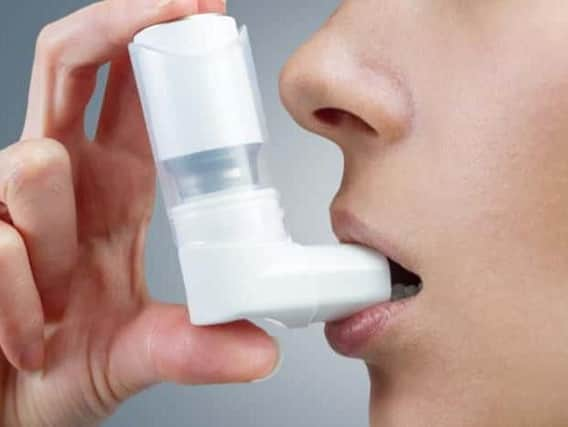Easter eggs could put people with asthma at risk of life threatening attack warns charity


New analysis by Asthma UK has revealed that around 700 people could be admitted to hospital over the Easter bank holiday weekend because of an asthma attack.
People with allergies to wheat, eggs, nuts and dairy products as well as having asthma could find that eating Easter eggs, Simnel cake or hot cross buns could trigger their asthma symptoms. Other Spring activities such as outdoor Easter egg hunts could also trigger asthma attacks in people who are sensitive to pollen.
Advertisement
Hide AdAdvertisement
Hide AdIf people have a food allergy, when they come into contact with a food allergen it causes their immune system to overreact and release a chemical called histamine. This causes the symptoms of an allergic reaction, which can include red, itchy, watery eyes and nose, sneezing, a scratchy or sore throat and itchy skin. For people with asthma, this can then trigger an attack where the airways start to tighten, leaving them coughing, wheezing and gasping for breath.
According to new research by Asthma UK, an estimated 4.3million people with asthma have said that their symptoms are triggered by pollen. At this time of year, many trees including birch, willow and elm are releasing pollen into the air.
A pollen allergy can irritate the nose, eyes and throat. This causes typical hay fever symptoms such as sneezing, itchy eyes and a runny or blocked nose, which can lead to asthma symptoms.
This includes avoiding food they are allergic to, seeking out ‘free from’ alternatives and making sure they know what to do if they have an allergic reaction. Those who are allergic to pollen should make sure they take antihistamines and check the pollen forecast.
Lyn Kendall, 61, a psychologist , has been hospitalised 10 times during the Easter period due to her asthma. She says: “Most people love Easter, but for me it’s a nightmare because of my asthma. I’ve been in hospital ten times because tree pollen, which I have a severe allergy to, comes out around Easter time and then triggers an asthma attack. If I popped to the shops, one minute I’d be fine and the next my face would swell up and I’d end up on the ground, struggling to breathe. Family would say there was no point buying Easter eggs as I’d always be in hospital so couldn’t enjoy them.
“Now I’ve identified tree pollen as my trigger, I make sure I take my antihistamines as prescribed as soon as I see the catkins coming out and I take my preventer inhaler. I’m determined to enjoy Easter, so even if I can’t go outside I’ll invite my family round for a meal as I love to cook. My advice to people with asthma is to identify your triggers and take your asthma meds so you can enjoy Easter.”
Dr Andy Whittamore, Clinical Lead at Asthma UK and a practicing GP, says: “Lots of people love getting involved in traditional Easter activities, chomping on chocolate eggs and racing around their garden or local park on an Easter egg hunt, but Easter could be deadly for some people with asthma.
Advertisement
Hide AdAdvertisement
Hide Ad“But if people take precautions, making sure they take their brown preventer inhaler and having their blue reliever inhaler with them, they can still enjoy Easter. We advise people with an allergy to ingredients in Easter eggs or hot cross buns to avoid the food completely, recognise the symptoms of a reaction and know what to do if it happens. People can seek out ‘free from’ alternatives and should read all food labels carefully if they’re unsure.
“Many people may not realise that trees begin releasing their pollen as early as January, so they may be caught out with hay fever symptoms over the Easter weekend. Taking hay fever medicines, which include antihistamines as well as nasal steroid sprays, not only stops people having hay fever symptoms but could also cut their risk of an asthma attack.”
